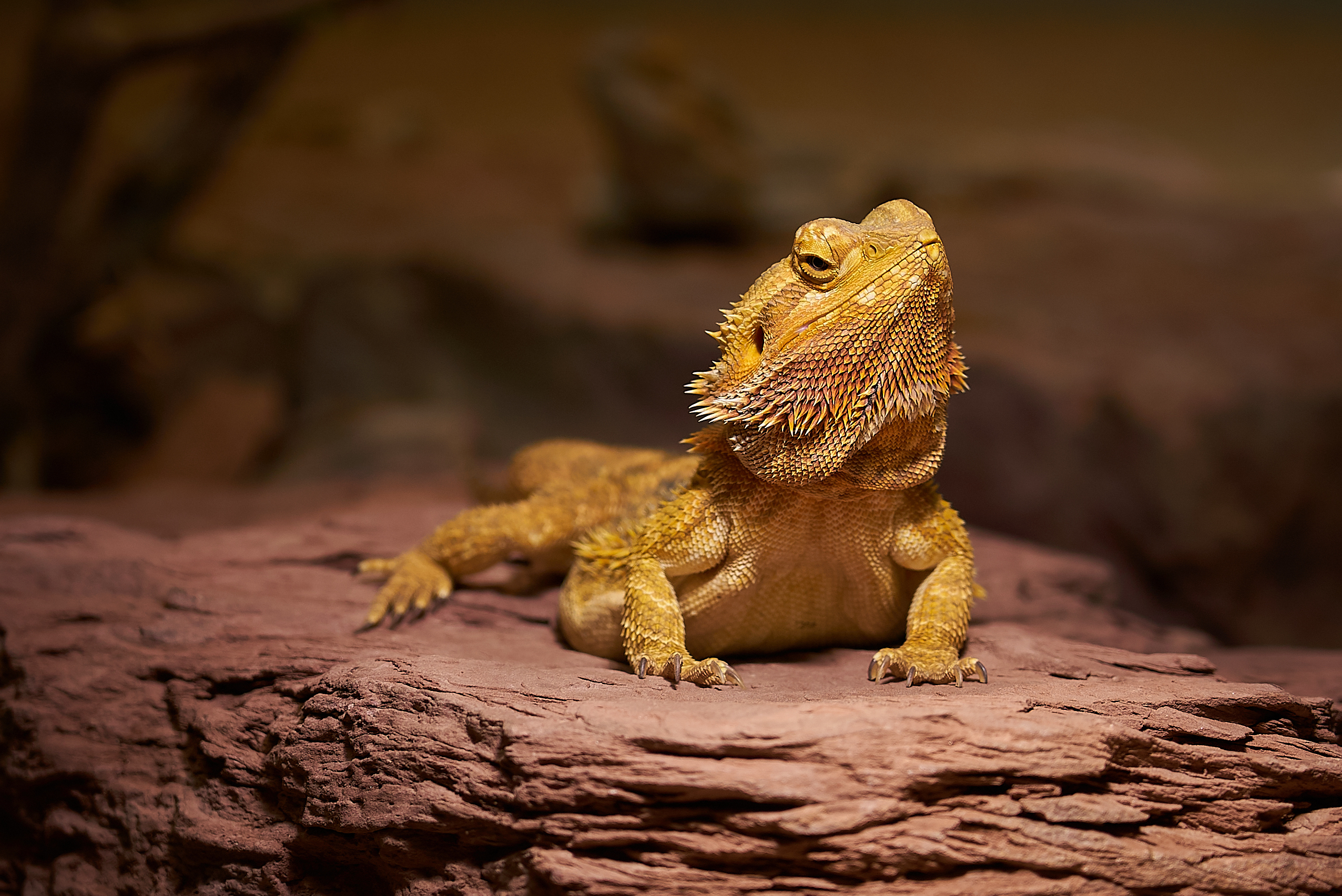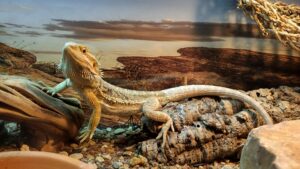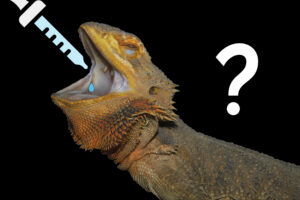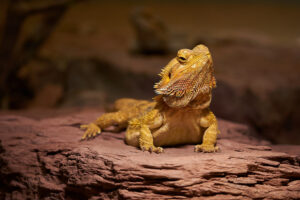In my previous post, I alluded to a time early in my beardie keeping when a dragon (Tad, actually) was closing one of his eyes a lot. Since it was something I had to dig into at the time, I figured the next logical post would be a summary of my findings.
The issue presented as a slow, almost lazy closing of his left eye at unusual times. While I was used to seeing him close one eye to get a better look at something of interest — usually a curious cat in the room — this was going on for an entire day. Basking, hanging from his log, even when I took him out of the enclosure to sit on my shoulder.
My first move was to inspect the eye for obvious trauma or debris. Then I flushed it with colloidal silver solution (30PPM) both to irrigate the eye and to counter any infection.
Then it was on to deeper research. Since I wasn’t seeing signs of injury or conjuctivitis, I figured there was something else going on.
I discovered that bearded dragons will typically do the “closing one eye” thing for a few reasons:
- It could be a sign of a Vitamin A (retinol) deficiency.
- They could have gotten too close to — or stared too long into — their UVB light.
- There could be something in their eye.
- They may have bacterial or viral conjunctivitis that’s unrelated to Vitamin A.
Bearded Dragon Photokeratitis
For me, the process of elimination led me to believe that Tad had given himself photokeratitis from being too close to his UVB. (This is, essentially, snow blindness without the snow.) He had a penchant for trying to get his face as close to any source of UVB light he could find. I’d already rearranged his enclosure and lighting setup multiple times to stop him from shoving his nose directly into the artificial sun, but I suspected he’d found a way.
I followed the advice of several other beardie keepers and turned off the UVB in his enclosure. I noticed that as soon as a few hours later, he wasn’t closing his eye as often. By the end of the second day without UVB, he wasn’t doing it at all.
Before reintroducing the UVB on the third day, I again changed the position of the light by temporarily raising it and angling it such that he’d have a nearly dark spot on the cool side. I figure I reduced the UVB in the enclosure overall by about 50% or so. We kept it in this position for another two days, then reverted it to normal.
Tad wasn’t especially lethargic during the blackout period, but I cut back on his food slightly while monitoring his poops carefully and giving him a little extra Vitamin A. The latter measure was just in case I was wrong about the UVB and was actually dealing with…
Vitamin A Deficiency in Beardies
Low Vitamin A (retinoids) can manifest readily in the eyes. This is a big deal with chelonians like turtles, where Vitamin A deficiencies and eye problems seem commonplace. Thankfully, this isn’t as prominent with beardies. We can chalk that up to the yet-to-be-determined possibility that beardies can synthesize provitamin A, like beta carotene, into retinoids. Or it could be because beardie keepers are pretty well-versed on supplementing through multivitamins. I’m inclined to think that, based on what we know about some other brumating lizards, the bearded dragon is probably pretty good at efficient retinoid metabolism — and storing reserves in their livers for lean times.
Keeping all that in mind, I went ahead and bought some Vitamin A eye drops on the first day Tad was winking funny. They’re marketed for turtles (because that’s how much they have to deal with this problem) but they work for dragons, too. And really, you can’t beat this deal on Amazon where you get the drops for a discount (ranges between $2-$4 total) along with a pack of Reptivite and enough Reptisafe to treat seven gallons of water. I think I paid almost that much just for a sample pack of Reptivite back in the day.
So, if you suspect hypovitaminosis A, give the drops a try. If you see other signs of Vitamin A deficiency — swollen or red eyes (conjunctivitis), weight loss, mucus — then go straight to your friendly neighborhood reptile vet.
Since you probably read The Bearded Dragon Cookbook, you should have your lizard’s diet dialed in so this isn’t the issue, though.
Debris, Stuck Shed, Injury
If you flush the eye and the problem persists, you’ll want to take your lizard to the vet. This is especially true if you can see debris or scaly skin stuck around the eye, or if you know there was trauma to the eye.
As with any stuck shed, you shouldn’t try to remove skin around the eye yourself. If you can’t get to the vet right away, you can still try irrigating the eye and allowing the sterile eye drops to moisten the shed.
Sources:
https://www.cliniciansbrief.com/article/vitamin-deficiency-insectivorous-lizards




